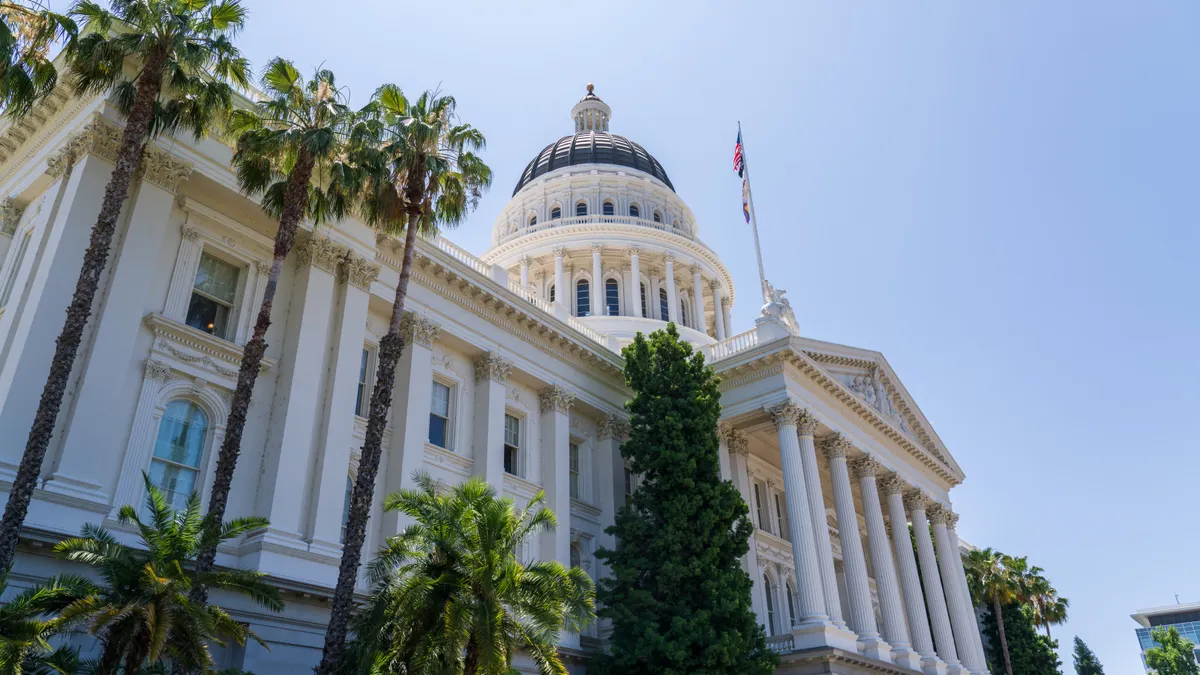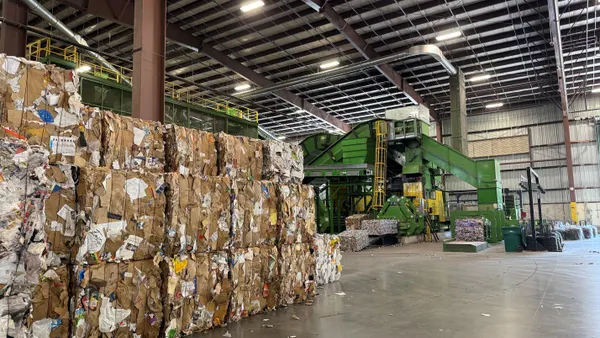California legislators wrapped their annual session late last week with action on only a handful of bills related to packaging or consumer products.
Here’s where some of the session’s more notable bills stand:
PFAS ban
SB 682, sponsored by state Sen. Ben Allen, passed the legislature on Friday and is heading to Gov. Gavin Newsom to sign. The bill would prohibit the distribution or sale in California of any food packaging that includes intentionally added per- and polyfluoroalkyl substances in products by 2028.
This builds on an existing law, AB 1200 from 2021, that bans the use of plant fiber-based food packaging which contains intentionally added PFAS or levels exceeding 100 parts per million.
Allen’s bill would also restrict the use of PFAS in certain products for juveniles, dental floss, cleaning products and ski wax by 2028. Limitations would then phase in for certain additional components of cleaning products by 2030 and cookware by 2031.
As of Sept. 12, the bill was supported by many environmental groups, such as Breast Cancer Prevention Partners, Clean Water Action, Environmental Working Group, the Natural Resources Defense Council and many others that have raised concerns about the health effects of PFAS. It was also backed by municipal groups such as the California Association of Sanitation Agencies, League of California Cities and certain local governments.
It was opposed by the American Chemistry Council, American Forest & Paper Association, California Chamber of Commerce, California Manufacturers & Technology Association, Can Manufacturers Institute, Consumer Brands Association, Flexible Packaging Association and numerous other trade groups.
AB 1148, a related bill that would have banned intentionally added bisphenols or ortho-phthalates in food packaging, did not advance this session.
Microbeads
AB 823, sponsored by Assemblymember Tasha Boerner, passed the legislature and was sent to Newsom on Sept. 5.
The bill expands on an existing 2020 law to further restrict the use of plastic microbeads in personal care products. AB 823 would ban the use of these microbeads in non-rinse-off products and cleaning supplies by 2029. It would also ban the sale of personal care products that use plastic glitter by 2030. The bill is described as the first of its kind in the U.S., following related policies in the European Union.
Supporters cited environmental, health and financial costs related to plastic microbeads ending up in wastewater systems and waterways. The bill received support from a host of environmental groups — including the California Product Stewardship Council, Californians Against Waste, NRDC, National Stewardship Action Council and Plastic Pollution Coalition — as well as companies such as Dr. Bronner’s and Chicobag. No opposition was recorded.
PCR change stalls out
One bill that survived a key legislative deadline in June didn’t advance before the end of the session.
SB 633 would have required beverage manufacturers covered by the state’s container redemption law to include information in their annual reports about the country of origin for their plastic and whether their postconsumer recycled content had been verified by a third-party entity.
State Sen. Catherine Blakespear, the bill’s lead author, teamed up with the Association of Plastic Recyclers to sponsor the legislation due to concerns that “sales of imported plastics into the U.S. have surged in the past two years, undermining investments in California and U.S. recycling infrastructure.” The supporters said this was happening despite the passage of AB 793 in 2020, which set PCR requirements for plastic beverage containers and was seen as a way to potentially boost domestic markets.
The bill was supported by the National Stewardship Action Council, NRDC and Republic Services. It was opposed by groups such as the American Beverage Association, American Chemistry Council, California Chamber of Commerce, California Grocers Association, Consumer Brands Association and International Bottled Water Association.














